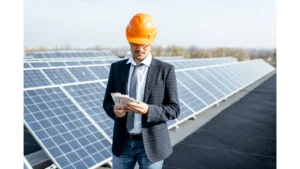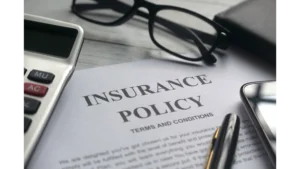
As the world becomes increasingly environmentally conscious, more individuals and businesses are turning to renewable energy sources such as solar power. While purchasing solar panels outright can be a significant investment, leasing has become an attractive option for those who want to reduce their carbon footprint without breaking the bank. Solar panel leasing allows homeowners and businesses to enjoy the benefits of solar power without paying the upfront costs associated with buying and installing them.
Leasing solar panels is a growing trend in the renewable energy market, providing freedom from high upfront costs and allowing users to benefit from clean energy at a lower price point. With many companies offering flexible lease agreements that allow consumers to customize their plans based on individual needs, it’s no surprise that this option has gained popularity in recent years. This article will explore the basics of solar panel leasing, how it differs from purchasing outright, and what you need to consider before signing a lease agreement for your home or business.
An overview of the fundamental concepts underlying solar panel leasing is crucial for individuals seeking to make informed decisions about their renewable energy options. Solar panel financing can be daunting for many households, and understanding the differences between leasing and buying can help them choose the right option for their needs. While purchasing solar panels outright may seem attractive for those with cash on hand, leasing offers several advantages that make it a viable alternative.
Leasing typically requires little or no upfront cost, making it an affordable alternative to purchasing solar panels outright. Instead of paying thousands of dollars upfront, homeowners pay a monthly fee over a set period, usually 20 years. This means that homeowners do not have to worry about maintenance or repair costs as these are often covered under the lease agreement.
Another advantage of leasing is that it allows homeowners to benefit from tax incentives and rebates without purchasing the system outright. This is because the company providing the lease owns the system installed on your property, which makes them eligible for any tax credits or incentives offered by local governments or utilities.
Overall, while buying solar panels outright may offer some benefits, such as ownership and potentially lower long-term costs, leasing offers an affordable way for households to access renewable energy without worrying about upfront costs and maintenance fees. Understanding these differences can empower individuals when deciding about their renewable energy options and allow them to take proactive steps toward reducing carbon emissions in their communities.
Assessing one’s energy requirements is a crucial first step in determining the most optimal and cost-effective solution for generating electricity. To evaluate your energy needs, you need to consider several factors such as the size of your property, your daily electricity consumption, and your budget. By understanding these factors, you can determine how much solar power you will require to meet your energy needs.
Calculating costs is an essential part of evaluating your energy needs. Before making any decisions about leasing or purchasing solar panels, it is crucial to understand the total cost involved. This includes installation costs, maintenance fees, and lease payments for leasing solar panels. You also need to factor in incentives offered by the government or utility companies such as tax credits or rebates that can reduce the overall cost of installing solar panels.
Understanding incentives is another critical aspect when evaluating your energy needs. Incentives can significantly impact the affordability of going solar and make it more attractive for homeowners looking to generate their electricity sustainably. For instance, some states offer net metering programs that allow homeowners with excess solar power production to sell back their unused electricity to utility companies at retail rates.
Before deciding whether to lease or purchase solar panels, assessing one’s energy requirements should be a top priority. Calculating costs and understanding incentives available from governments or utility companies are also important considerations when evaluating one’s energy needs. By considering all these factors, homeowners can make informed decisions that align with their budgets while still contributing towards sustainable living practices through renewable energy generation using solar power technology.
When researching solar panel leasing companies, it’s important to take the time to compare options before making a decision. This includes evaluating the terms and conditions of each company’s lease agreement, pricing, and customer service. Reading reviews from other customers can also provide valuable insight into a company’s reputation and reliability. Additionally, checking a company’s credentials, such as licensing and certifications, can help ensure they are trustworthy and qualified to install solar panels on your property.
One may consider the potential benefits and drawbacks of leasing solar panels versus purchasing them outright to compare the available options. Solar panel leasing offers numerous advantages, including lower upfront costs, no maintenance or repair expenses, and the ability to upgrade to more efficient panels as technology advances. Additionally, many leasing companies offer a performance guarantee, meaning v.
However, there are also some downsides to solar panel leasing. For example, while lease payments may be less than monthly utility bills initially, they can increase over time and cost more than owning the panels outright in the long run. Additionally, leased systems typically come with lengthy contracts that can be difficult or expensive to remove if you move or decide you no longer want them. Ultimately, each individual’s situation will determine whether leasing or owning solar panels is the better choice financially and environmentally.
Reading reviews of different options can provide valuable insights and help individuals make informed decisions about their investment in renewable energy. When reviewing solar panel leasing options, it is important to consider not only the cost and terms of the lease but also the quality of the equipment and customer service provided by the leasing company. Here are some emotional bullet points to keep in mind when reading reviews:
Reading reviews from other customers can help individuals find a reputable leasing company that offers quality equipment, excellent customer service, and potential discounts. Reviewing multiple options before making a decision may lead to greater satisfaction with the final investment in renewable energy.
Verifying the credentials of a potential renewable energy provider can instill confidence and trust in their qualifications and expertise. It is important to ensure that the company you are considering leasing solar panels from has the licenses, certifications, and insurance policies required by your state or local government. This will not only protect you from scams but also guarantee that you receive quality services.
To verify a provider’s qualifications, check if they have a license to operate in your state. You can do this by visiting your state’s licensing website or contacting your local government office. Additionally, look for providers with industry-recognized certifications, such as those offered by the North American Board of Certified Energy Practitioners (NABCEP). Finally, ensure they have insurance policies covering any damages resulting from installation or maintenance activities. By taking these steps, you can avoid scams and ensure you lease solar panels from a reputable provider with the proper qualifications.
The terms of a solar panel lease typically outline the payment structure, length of the lease, and any potential additional fees. Understanding these terms is crucial for anyone considering leasing solar panels as an alternative to purchasing them outright. One important aspect is the payment structure, which can vary depending on the provider. Some leases require monthly payments that remain fixed throughout the duration of the lease, while others may offer variable payments based on energy production.
Another important consideration when reviewing a solar panel lease agreement is to avoid hidden fees. These fees can include charges for early termination or maintenance costs not covered under warranty. It’s essential to carefully review all terms and conditions outlined in the agreement before signing anything. This includes reading through any fine print and asking questions about anything that isn’t clear.
In addition to understanding lease payments and avoiding hidden fees, knowing how long your lease will last is important. Most leases range from 10-25 years, with some providers offering shorter or longer options. Additionally, many leases offer buyout options at the end of their term if you want to keep your solar panels instead of returning them.
Overall, leasing solar panels can be a great option for those who want to benefit from renewable energy without paying upfront costs associated with purchasing systems outright. By understanding your payment structure, avoiding hidden fees, and knowing how long your lease will last, you’ll be better equipped to make an informed decision about whether or not leasing is right for you.
Before investing in solar panels, assessing your home’s solar potential is important. This involves analyzing your roof’s orientation and angle, checking for shading, and evaluating your home’s energy efficiency. By conducting these assessments, you can determine if solar panels are viable for your home and how much energy they can generate.
Assessing the orientation and angle of your roof is crucial in determining the potential solar energy that can be harnessed. The optimal orientation for solar panels is south-facing, as it receives the most sunlight throughout the day. East and west-facing roofs can also work, but they will not produce as much energy due to receiving less direct sunlight. North-facing roofs should be avoided altogether, as they receive very little sunlight.
Additionally, the angle of your roof is also important in maximizing solar potential. The ideal angle for solar panels varies depending on your location’s latitude, but a general rule of thumb is a tilt between 30-40 degrees from horizontal. This allows for maximum exposure to direct sunlight throughout the year. Roof orientation analysis and proper solar panel placement are essential to ensure you get the most out of your solar system investment.
Orientation | Pros | Cons |
South-Facing | The maximum amount of direct sunlight throughout the day | Potential shading from trees or other structures |
East/West-Facing | Still receives a decent amount of direct sunlight | Less efficient than south-facing roofs |
North-Facing | Poor performance; minimal direct sunlight exposure | Not recommended for solar panel installation |
Table: Pros and Cons of Different Roof Orientations | South-Facing | Best orientation for solar panel installation; receives most direct sunlight | Most efficient option for solar energy production |
After analyzing your roof’s orientation and angle, the next crucial step in determining whether leasing solar panels is feasible is to conduct a shading analysis. Shading can significantly impact the efficiency of your solar panels, and it is essential to ensure that they receive ample sunlight throughout the day.
A shading analysis involves assessing obstructions such as trees, buildings, or other structures that cast shadows on your roof. Professional installers typically use specialized tools to measure shade patterns accurately. They will also consider factors such as the time of day and year to determine potential shading issues. A location assessment will help identify any obstacles that could hinder the optimal performance of your solar system and help you make an informed decision about leasing or purchasing solar panels.
One crucial aspect of determining the feasibility of a home’s solar energy system is evaluating its overall energy efficiency, which can significantly impact the amount of power needed to meet daily needs. This process involves assessing how well-insulated your home is and whether there are any areas where energy is being wasted. Home insulation is critical in regulating temperature, reducing heat loss during winter and preventing heat gain in summer months. Poor insulation can cause your heating or cooling systems to work harder, increasing energy usage and costs.
Another method for evaluating your home’s energy efficiency is an energy audit. During an audit, a professional will assess your home’s appliances, lighting fixtures, windows, doors and other aspects contributing to overall electricity consumption. By identifying areas of inefficiency or potential upgrades, you can make informed decisions about improving your home’s overall energy performance. Ultimately, investing in better insulation or upgrading outdated appliances could reduce the electricity required to power your home and make it more suitable for a solar panel lease agreement.
Aspect | Importance | Potential Action |
|
|
|
Insulation | High | Upgrade to high-quality insulation material |
Appliances | Medium | Replace old appliances with Energy Star-certified models |
Lighting fixtures | Low | Switch to LED bulbs |
Windows & Doors | Medium-High | Install double-pane windows & weatherstripping around doors |
Table: Evaluating Your Home’s Energy Efficiency
To thoroughly evaluate the feasibility of leasing solar panels instead of purchasing them, obtaining and carefully reviewing quotes from multiple reputable providers is crucial. Reviewing quotes will give you valuable insight into the costs associated with leasing solar panels. It is important to compare prices between different providers to ensure you get a fair lease deal.
When obtaining quotes, make sure to ask for detailed information about the terms of the lease agreement. This includes information about monthly payments, the length of the lease, and any additional fees that may be included in the agreement. It is also important to ask about maintenance and repair policies for leased solar panels.
In addition to comparing prices between different providers, it is important to consider factors such as customer service and reputation when choosing a provider. Make sure to read reviews and testimonials from previous customers before deciding. A reliable provider with excellent customer service can help ensure a smooth leasing experience.
Obtaining and reviewing quotes from multiple reputable providers is essential when considering leasing solar panels for your home. By comparing prices and evaluating other factors, such as customer service, you can make an informed decision that meets your energy needs while staying within budget constraints.
Negotiating the terms of a solar panel leasing agreement is an important step in ensuring that you are getting the best deal possible and that the lease meets your specific energy needs. Understanding what factors can affect your lease payment and how to negotiate favorable lease terms is crucial. One of the most significant factors to consider when negotiating a solar panel lease is the duration of the lease. A solar panel lease can vary from 10-25 years, depending on your location and installer.
To help you negotiate effectively, here’s a table showing some sample monthly payments based on different lease durations and system sizes:
System Size | Lease Duration | Monthly Payment |
|
|
|
5 kW | 15 years | $75-$150 |
7 kW | 20 years | $100-$200 |
9 kW | 25 years | $125-$250 |
As you can see from this table, longer leases typically result in lower monthly payments. However, it’s essential to consider other factors like maintenance costs and potential changes in electricity prices over time when choosing the right duration for your solar panel lease.
When negotiating favorable terms, it’s also important to consider any additional fees or charges associated with the lease agreement. These may include upfront costs such as installation fees or ongoing expenses like monitoring charges. Be sure to ask questions about these fees and negotiate the best terms for you.
Negotiating for a solar panel leasing agreement requires careful consideration of various factors like duration and additional fees. By understanding these elements and using effective negotiation tactics, you can secure favorable terms that meet your energy needs while providing long-term cost savings.
Reviewing all lease agreement terms and conditions before signing is important when finalizing the agreement for leasing solar panels. This ensures a clear understanding of the responsibilities and obligations outlined within the document. It is essential to examine every detail of the agreement, including payment options, length of lease term, maintenance requirements, and potential penalties for early termination.
Lease agreement terms may vary depending on the provider. Some companies offer flexible payments that allow lessees to pay monthly or annually over a set period. Others may require upfront costs before installation or have strict payment schedules that must be adhered to to avoid penalties. Lessees need to understand these terms and choose an option that fits their financial situation.
Additionally, lessees should carefully consider the length of the lease term before signing any agreements. Leases typically range from 10-20 years with some offering renewal options at various points throughout the contract period. Lessees should evaluate their energy usage and plans when deciding on a lease term that best suits their needs.
Lastly, lessees must review maintenance requirements outlined in the lease agreement and any penalties associated with early termination or damage caused by neglect or misuse. These details are crucial to any leasing arrangement and will affect both parties involved in this contract.
Leasing solar panels can be an excellent way for homeowners or businesses to reduce energy costs while minimizing their carbon footprint. However, careful consideration of all lease agreement terms and conditions must be considered before signing any documents related to this arrangement. Doing so allows both parties to enjoy a mutually beneficial relationship that provides clean energy solutions for years.
After signing the lease agreement for solar panels, the next step is to enjoy the benefits of solar power. Individuals and businesses can save money on electricity bills by leasing solar panels. This is because solar energy is a renewable resource that does not require additional expenses once the initial installation is completed.
One of the major advantages of leasing solar panels is maximizing savings. The cost of electricity continues to increase year after year, making it difficult for many to keep up with their monthly bills. However, by using solar power, consumers can reduce their reliance on traditional energy sources and save money in the long run. Leasing also eliminates upfront costs associated with purchasing and installing new equipment.
Leasing solar panels also reduces carbon footprint, one of this technology’s most significant environmental benefits. Solar energy produces no greenhouse gas emissions or other pollutants that contribute to climate change. As a result, using renewable energy sources like solar power helps protect our planet from further damage caused by fossil fuels.
Leasing solar panels offers numerous benefits for consumers who want to save money on their electricity bills while reducing their carbon footprint. By taking advantage of this technology today, we can help create a brighter future for ourselves and future generations. With more people adopting sustainable practices such as utilizing renewable resources like solar power through leasing programs, we can all work towards creating a cleaner and healthier environment for everyone!
Leasing solar panels provides financial benefits such as no upfront costs and lower monthly payments. Tax incentives for leasing vary by state, but may include federal tax credits and property tax exemptions. Comparing leasing vs. buying costs is essential for making an informed decision.
The panel removal process and lease transferability depend on the solar panel lease agreement terms. Some agreements allow easy removal while others may require a fee or prohibit removal altogether. Before signing any agreement, proper research and consultation with the leasing company is recommended.
Adjusting a solar panel lease to match changing energy needs is possible but may incur additional costs. Early termination of the lease may also come with penalties. Consider all options before committing to a solar panel lease agreement.
Responsibility division for maintenance and repairs of leased solar panels is typically outlined in the contract between the lessee and lessor. Warranty coverage may also be included in the contract to ensure proper upkeep.
Bankruptcy implications and contract termination are potential consumer risks when leasing solar panels. It is important to carefully review the terms of the lease agreement and consider purchasing insurance or seeking legal advice to mitigate potential financial losses in case of bankruptcy.

How Long Will It Take For My Solar Panels System To Pay For Itself? Share: Facebook Twitter LinkedIn Pinterest Investing in a solar panel system

How Does The Installation Of Solar Panels Affect My Property Taxes? Share: Facebook Twitter LinkedIn Pinterest With the increasing concern for the environment and the

What Kind Of Financing Options Are Available For Solar Panel Installation? Share: Facebook Twitter LinkedIn Pinterest What Financing Options Are Available For Solar Panel Solar

What Happens If My Solar Panels Generate Excess Solar Power? Share: Facebook Twitter LinkedIn Pinterest Solar Panels Generate More Electricity Than I Use As more

How Does The Installation Of Solar Panels Affect My Homeowners Insurance? Share: Facebook Twitter LinkedIn Pinterest How Solar Panels Affect My Homeowners Insurance The installation

State Grants Share: Facebook Twitter LinkedIn Pinterest The Database of State Incentives for Renewables & Efficiency (DSIRE) is a comprehensive source of information on federal,